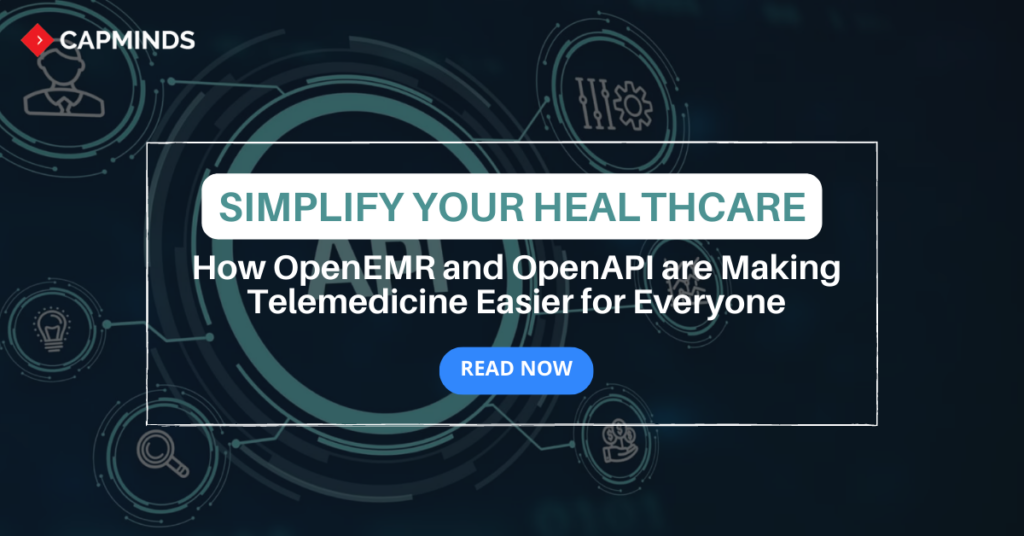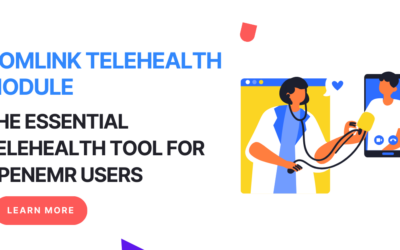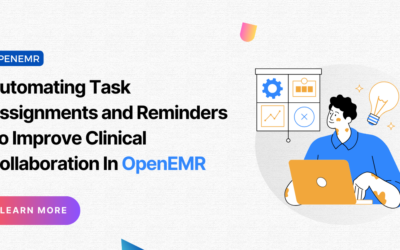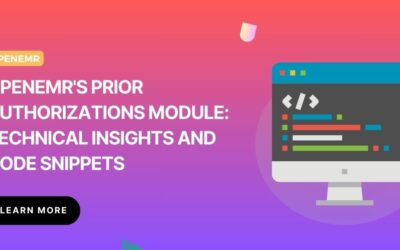How OpenEMR and OpenAPI are Making Telemedicine Easier for Everyone
The evolution of telemedicine has revolutionized healthcare delivery, allowing medical professionals to provide remote consultations and care to patients. However, integrating external telemedicine platforms with Electronic Medical Record (EMR) systems presents a significant challenge due to the diversity of data formats and communication protocols.
we’ll explore how OpenAPI can be harnessed to seamlessly integrate OpenEMR—an open-source EMR solution—with external telemedicine platforms, enhancing interoperability and patient care.
The Interoperability Challenge
Telemedicine platforms bring the promise of remote consultations, efficient scheduling, and patient engagement. However, bridging the gap between these platforms and EMR systems like OpenEMR requires a standardized approach.
Variations in data formats, security mechanisms, and communication protocols can hinder the seamless exchange of patient data and appointment information.
The OpenAPI Solution
OpenAPI, a widely adopted specification for building and documenting APIs, provides a robust solution to the interoperability challenge. By defining a unified API specification, OpenEMR can streamline the integration with external telemedicine platforms. Let’s delve into the technical details of how this can be achieved.
Defining the API with OpenAPI
yaml openapi: 3.0.0 info: title: OpenEMR Telemedicine API version: 1.0.0 paths: /telemedicine/appointments: post: summary: Schedule a telemedicine appointment requestBody: required: true content: application/json: schema: type: object properties: patientId: type: string date: type: string format: date-time doctorId: type: string responses: '200': description: Appointment scheduled successfully '400': description: Bad request '500' description: Internal server error
In this OpenAPI definition, we’ve created a POST endpoint `/telemedicine/appointments` that accepts JSON data containing patient ID, appointment date, and doctor ID.
Generating Client Libraries
Using OpenAPI tools, developers can automatically generate client libraries for external telemedicine platforms. These libraries abstract away the complexities of HTTP requests and authentication, simplifying the integration process for external developers.
python
import requests
class TelemedicineClient:
def __init__(self, base_url, api_key):
self.base_url = base_url
self.api_key = api_key
def schedule_appointment(self, patient_id, date, doctor_id):
headers = {
"Authorization": f"Bearer {self.api_key}",
"Content-Type": "application/json"
}
payload = {
"patientId": patient_id,
"date": date,
"doctorId": doctor_id
}
response = requests.post(
f"{self.base_url}/telemedicine/appointments",
json=payload,
headers=headers
)
return response
Integration in OpenEMR
In OpenEMR, implementing the `/telemedicine/appointments` endpoint involves adhering to the OpenAPI specification and processing incoming data.
python
from flask import Flask, request, jsonify
app = Flask(__name__)
@app.route('/telemedicine/appointments', methods=['POST'])
def schedule_telemedicine_appointment():
try:
data = request.get_json()
# Perform validation and scheduling logic here
# ...
return jsonify({"message": "Appointment scheduled successfully"}), 200
except Exception as e:
return jsonify({"error": str(e)}), 500
if __name__ == '__main__':
app.run()
By harnessing OpenAPI to integrate OpenEMR with external telemedicine platforms, healthcare providers can unlock a multitude of benefits:
-Efficient Workflow: Seamless integration streamlines appointment scheduling and patient data exchange, enhancing healthcare provider workflows.
– Data Integration: Standardized communication ensures accurate data exchange, minimizing errors and improving patient care.
– Interoperability: OpenAPI promotes interoperability between disparate systems, fostering a unified healthcare ecosystem.
– Innovation: Third-party developers can create telemedicine integrations more easily, driving innovation in patient care delivery.
The power of OpenAPI lies in its ability to bridge the gap between healthcare systems, such as OpenEMR, and external telemedicine platforms. This technical integration empowers healthcare providers to offer remote consultations while maintaining data accuracy, security, and a seamless patient experience.
As the healthcare industry continues to embrace digital transformation, OpenAPI stands as a foundational tool for achieving efficient and patient-centric care delivery.
CapMinds is more than an integration partner; we’re your strategic ally in achieving healthcare excellence. Unlock the potential of streamlined healthcare with CapMinds. Our specialists excel in OpenAPI and OpenEMR integration, connecting your systems effortlessly. From patient data to workflows, we ensure accuracy, security, and compliance




